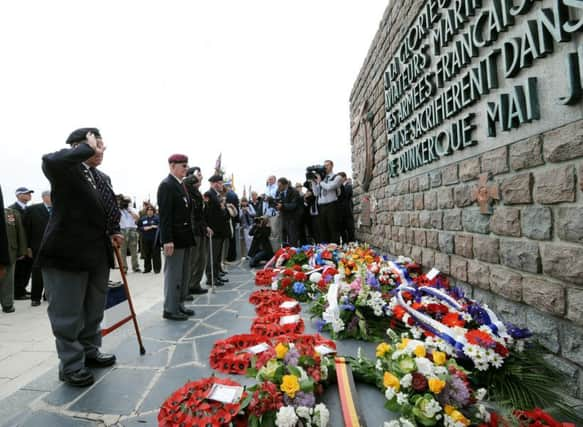Brian Monteith: Sacrifice means we can argue over war and peace


The 11th of November is always a solemn day of remembrance for the vast majority of people in the British Isles. On that day 100 years ago, in 1918, at the eleventh minute of the eleventh hour the armistice came that ended what was thought to be known as the Great War.
There was of course nothing “great” about it in today’s common usage of the word, but it was great because it was so large, so all encompassing and so horrific that people thought it would be the war to end all wars. That we did not learn from it, and within 21 years were engulfed in it again, points to why we have to remember both wars, and all wars since then, so that we might learn and avoid such conflicts in the future.
Advertisement
Hide AdAdvertisement
Hide AdThere are of course no guarantees we shall not repeat mistakes of the past. Even being a democracy brings no certainty that war will not break out if people believe they are under a clear threat. What we can do is ensure that, whatever the rights and wrongs of the conflict, the sacrifices made by past generations – and those serving today – so that we may live our lives freely are given the respect they deserve.
School trips that take pupils to war graves and run projects on what battles were fought, what the conditions were like, and recall what the history behind the fighting was, are not about warmongering or glorifying war. Indeed it is difficult to find anyone who has fought in battle that has anything good to say about war – most do not want to talk about their experiences for the horrible memories it can bring back.
My grandfather was very reluctant to talk about his time at Dunkirk, El Alamein or Normandy – instead making light of it or changing the subject. My great-grandfather was not so lucky to know his grandson, my father, for he died at Loos in 1915. Living in Bothwell Street, I like to think he might have seen Hibs win the Cup in 1902, although it is unlikely, for he also served in the Boer War that year.
Whether or not he had died I would still wear a poppy, because I wear it not just to remember his sacrifice – willingly given as a volunteer – but for all those who willing to risk their lives for their families already living and yet to come.
Advertisement
Hide AdAdvertisement
Hide AdIt was saddening to see that some people thought it right to desecrate the garden of remembrance in East Princes Street Gardens by vandalising the crosses laid out for those that served in our defence.
It is not possible to know the motives but one thing is obvious – disrespecting our acts of remembrance does nothing to maintain peace in the future. By comparison a beautiful statue, The Haunting, to commemorate the Irish fallen during the Great War was unveiled in St Stephen’s Green, Dublin. It is easy to forget the whole British Isles made sacrifices between 1914-18.
The red poppy is a poignant symbol of sacrifice. Some people choose to wear a white poppy that says “peace” in the middle – and that is of course their right, just as it is my right to believe it is a misplaced appropriation of the poppy symbol that gives respect to individual sacrifice. It does not say “war” in the middle. Indeed I cannot think of anyone I know who would wear a badge advocating “war” as a general approach to international relations.
The reason we are able to disagree about the approach to war and peace is because of the sacrifice our forbears made and some are still willing to make in securing our freedoms. That’s why we can all wear the red poppy without renouncing our belief in working for peace.